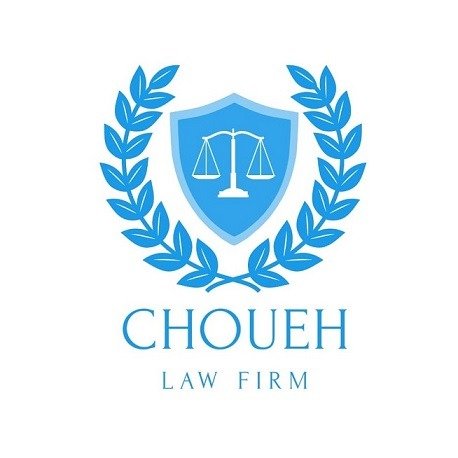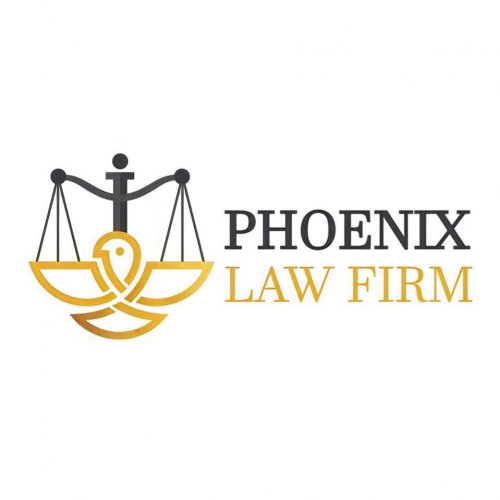Best Banking & Finance Lawyers in Lebanon
Share your needs with us, get contacted by law firms.
Free. Takes 2 min.
Or refine your search by selecting a city:
List of the best lawyers in Lebanon
About Banking & Finance Law in Lebanon
Banking and finance law in Lebanon encompasses the regulation and supervision of financial institutions, transactions, and markets. The Lebanese banking sector is traditionally one of the most developed in the Middle East, with a significant focus on maintaining privacy and confidentiality. The Central Bank of Lebanon, known as Banque du Liban, plays a pivotal role in ensuring the stability of the monetary system by regulating banks and financial institutions. The Lebanese banking system is characterized by a strong domestic banking presence, a developed regulatory framework, and significant foreign currency deposits, often influenced by the conditions of the Lebanese economy and politics.
Why You May Need a Lawyer
Individuals and businesses may require legal assistance in the banking and finance sectors for various reasons. Common situations include establishing a new bank or financial institution, navigating complex financial regulations, dealing with loan agreements, resolving disputes with banks or financial entities, and ensuring compliance with anti-money laundering laws. A lawyer can also assist with regulatory filings, securing finance from international or domestic banks, representing clients in litigation or arbitration, and advising on mergers and acquisitions in the banking sector.
Local Laws Overview
The Lebanese financial sector is primarily governed by the Code of Money and Credit, which establishes the framework for banking operations and financial services in Lebanon. Key aspects include:
- Bank Secrecy Law: Offers a high level of confidentiality for bank accounts and deposits, affecting both Lebanese and foreign entities with accounts in Lebanon.
- Central Bank Regulations: Guidelines issued by Banque du Liban that regulate liquidity, capital adequacy, and risk management for banks.
- Anti-Money Laundering (AML) and Counter Financing of Terrorism (CFT): Laws and directives ensure financial institutions adhere to international standards, imposing strict reporting and due diligence requirements.
- Consumer Protection Laws: Enactments designed to protect consumers in their dealings with financial institutions, ensuring transparency and fairness.
Frequently Asked Questions
What role does Banque du Liban play in the Lebanese banking system?
Banque du Liban acts as the central bank, regulating monetary policy, supervising banks, issuing currency, and maintaining financial stability.
What should I know about Lebanon's banking secrecy laws?
Lebanon's banking secrecy laws provide strong protection for account holders, though recent amendments have limited secrecy to combat tax evasion and terrorism financing.
Are there special financial regulations for foreign investors in Lebanon?
Yes, foreign investors often face sector-specific regulations and are encouraged to adhere to the foreign direct investment policies governing the financial sector.
How can I resolve a dispute with a bank?
Disputes with banks can often be resolved through negotiation or mediation, but legal action may be necessary. Legal advice from a banking lawyer can be crucial.
What is the process for setting up a bank in Lebanon?
Setting up a bank requires obtaining a license from Banque du Liban, meeting capital requirements, and complying with extensive regulatory reviews and approvals.
How does the Lebanese legal system handle insolvency and bankruptcy for banks?
The law provides a comprehensive framework for bank recovery and resolution, prioritizing systemic stability and protection of depositors.
Are there restrictions on currency movements out of Lebanon?
While Lebanon traditionally had liberal currency movement policies, recent economic challenges have led to informal capital controls affecting transfers and withdrawals.
Can a foreign entity fully own a financial institution in Lebanon?
Yes, although certain sectors may have restrictions or require additional approvals, foreign ownership is generally allowed following sector-specific regulations.
How do Lebanese financial laws protect investors?
Investment protection involves strict compliance requirements and disclosure obligations, aiming to ensure investor confidence and protect from fraud.
What are the penalties for non-compliance with banking regulations?
Penalties vary from fines and sanctions to license revocations, depending on the severity of the non-compliance and the specific laws violated.
Additional Resources
The following resources can be helpful for individuals and businesses seeking information or assistance in banking and finance law in Lebanon:
- Banque du Liban: The central bank regulator provides comprehensive details on regulations, circulars, and financial stability reports.
- Association of Banks in Lebanon: Offers resources and updates on the banking sector's role in the economy.
- Ministry of Finance: Provides reports and data on Lebanon's financial policies and banking transactions.
- Lebanese Bar Association: A directory of certified lawyers specializing in banking and finance law.
Next Steps
If you require legal assistance in banking and finance, consider the following steps:
- Identify Your Needs: Determine the specific legal help you require, such as regulatory compliance, contract negotiation, or dispute resolution.
- Research Legal Professionals: Look for experienced lawyers or firms specializing in banking and finance law. Consult directories like the Lebanese Bar Association for referrals.
- Schedule Consultations: Arrange meetings with potential lawyers to discuss your case, their expertise, and fee structures.
- Select the Right Advisor: Choose a lawyer who understands your needs and has a strong track record in banking and finance law.
- Maintain Open Communication: Once you've engaged a lawyer, ensure ongoing communication and updates regarding your legal matters.
Lawzana helps you find the best lawyers and law firms in Lebanon through a curated and pre-screened list of qualified legal professionals. Our platform offers rankings and detailed profiles of attorneys and law firms, allowing you to compare based on practice areas, including Banking & Finance, experience, and client feedback.
Each profile includes a description of the firm's areas of practice, client reviews, team members and partners, year of establishment, spoken languages, office locations, contact information, social media presence, and any published articles or resources. Most firms on our platform speak English and are experienced in both local and international legal matters.
Get a quote from top-rated law firms in Lebanon — quickly, securely, and without unnecessary hassle.
Disclaimer:
The information provided on this page is for general informational purposes only and does not constitute legal advice. While we strive to ensure the accuracy and relevance of the content, legal information may change over time, and interpretations of the law can vary. You should always consult with a qualified legal professional for advice specific to your situation.
We disclaim all liability for actions taken or not taken based on the content of this page. If you believe any information is incorrect or outdated, please contact us, and we will review and update it where appropriate.
Browse banking & finance law firms by service in Lebanon
Lebanon Attorneys in related practice areas.
Browse banking & finance law firms by city in Lebanon
Refine your search by selecting a city.










